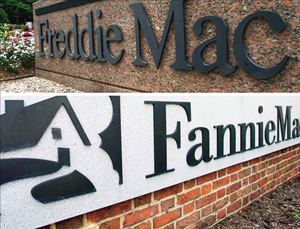 by Saeed Shabazz
by Saeed Shabazz
Special to the NNPA from The Final Call
A proposed bill could potentially impact two federal programs geared toward home ownership.
According to the Reverse Mortgage Daily, the new housing reform bill would scale down and eliminate the Government Sponsored Enterprises (GSEs) known as Freddie Mac and Fannie Mae, the lending programs which helped boost the percentage of Black home ownership.
The new bill would end the affordable housing goals of both programs and would be replaced with a new agency the Federal Mortgage Insurance Corporation, a government re-insurer, Marc Morial, President and CEO of the National Urban league explained to The Final Call.
The Housing Finance Reform and Taxpayer Act of 2013 (S-1217) or the Johnson-Crapo bill, as it is also known was voted out of the Senate Committee on Banking and Urban Affairs, May 15 by a bipartisan vote of 13 for 9 against.
Mr. Morial argued that people must stay focused on the new bill and pointed out that a glaring omission in it is the affordable housing component of the bill.
morial2012_1.jpg
Marc Morial, President and CEO of the National Urban League.
Proponents of the bill are seemingly at odds with Mr. Morial and the coalition of organizations fighting its passage, arguing the bill is in fact important for allowing families to purchase homes using mortgages that are not guaranteed by the government.
“Real reform is clearly necessary to stabilize the housing system and renew the faith in the American dream of home ownership for generations to come,” according to a statement released by one of the bill’s co-sponsors Sen. Bill Johnson (D-South Dakota).
Opponents disagree. It will make it much more difficult for low or moderate-income first-time home buyers to realize the ‘American Dream’ if they end Freddie Mac and Fannie Mae, argued Arnold Nelson, a resident of Kansas City, Kansas. “We bought our first home in Denver, Colorado in 1986 because of Fannie Mae, which allowed us to get a mortgage at a lower rate,” Mr. Nelson told The Final Call.
Some observers note that what Sen. Johnson really meant is that the bill intends to encourage the return of private investors to replace the function of the Fannie Mae and Freddie Mac.
“That’s definitely bad news, because the commercial lenders charge higher rates, and they sell your mortgage to the next highest bidder without your consent,” said Mr. Nelson.
“The biggest problem with Johnson-Crapo is that it would eliminate the GSEs’ affordable housing goals,” said New York attorney Matthew Russell Lee, publisher of Inner City Press and CEO of Fair Finance Watch, a Bronx-based housing mortgage and bank loan watchdog organization.
He added that because of the close vote by the Banking Committee, the U.S. Senate Majority Leader, Harry Reid (D-Nevada) isn’t going to bring it to the floor [for a vote].
Like Mr. Morial, Mr. Lee said he is watching developments closely.
Mr. Morial reminds The Final Call that for Blacks building wealth through homeownership is very important. “Blacks are the only racial or ethnic group that continues to experience a home ownership decline in the economic recovery period [down 2.5%],” he stressed.
Mr. Morial repeated that what must be stressed is that any new bill “must help to ensure access to affordable mortgage credit for all credit-worthy borrowers.




